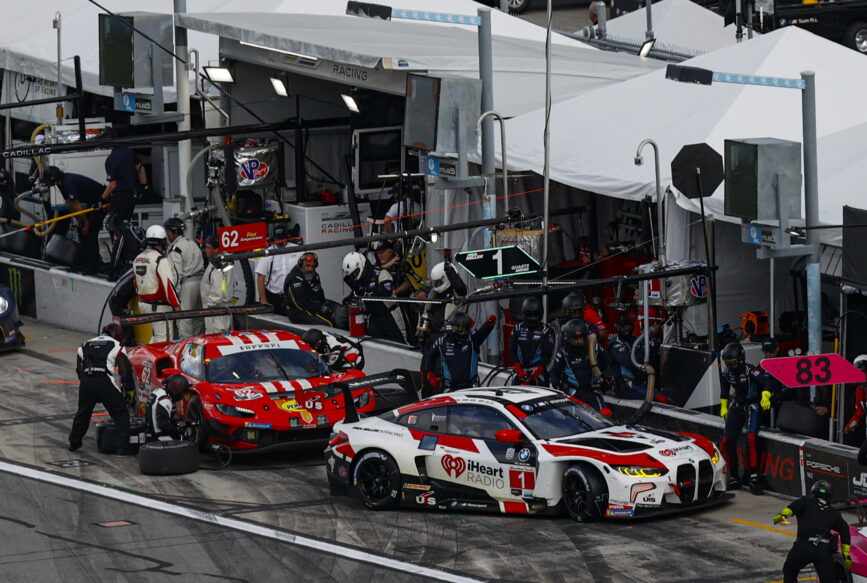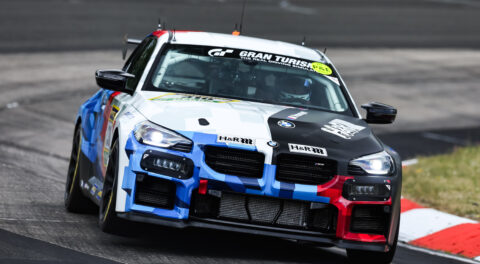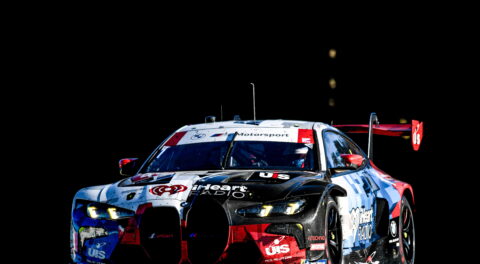Unlike sports such as football and baseball, where you know who won the game by the final score at the end, racing fans may celebrate a win for their favorite team, but then find out later that a win was taken away after a car failed post-race inspection or was handed a post-race penalty well after the podium celebrations are over.
It usually doesn’t take nearly a month for a penalty to be handed down, but that’s what happened on February 23rd when IMSA gave BMW and Ferrari penalties from the Rolex 24 at Daytona that took place 26 days prior. BMW and Ferrari were docked all manufacturer points for their results in both the GTD Pro and GTD classes, after both manufacturers “demonstrated performance in the Daytona 24 Hour Race that exceeded IMSA’s expectations as shared in the GT manufacturers technical working groups.” Both manufacturers were also given a $25,000 fine.
IMSA put in a new balance of performance (BoP) system for 2024 in which the manufacturers had to state and define their own performance parameters, which in this case involved the BMW M4 GT3. Those parameters were decided on and declared after an official IMSA test at Daytona in December, and IMSA then determined the BoP tables for the Roar Before the 24 testing that was held a week before the Rolex 24 race. Those tables were also revised in the week between the Roar test and the race, which in BMWs case resulted in a 12hp increase through adjusted turbo boost pressures for the M4 GT3, along with a 3-liter increase in fuel capacity.
With all the analytical power available today, it’s unclear why it took IMSA nearly a month to decide that BMW and Ferrari exceeded their expected performance levels as decided on in previous testing. BoP is a necessary evil in sportscar racing to provide close racing among cars of widely varying configurations, but the performance of a car can vary significantly depending on factors like track conditions and air temperature, especially with cars running turbocharged engines over the course of 24 hours.
IMSA didn’t place any blame on the teams that were running the BMW M4 GT3 and the Ferrari 296 GT3, but by taking away the manufacturer points and levying fines they are placing the responsibility on BMW and Ferrari for going outside their expected window of performance of their cars during the Daytona race. The race results were not changed, and the teams and drivers were allowed to keep the points they scored toward the team and driver championships.
With the docking of manufacturer points, BMW lost 300 points in GTD Pro, (scored from the Paul Miller Racing M4 GT3 that finished third) and 250 points in GTD (scored from the Turner Motorsport M4 GT3 that finished 14th). BMW also lost fifteen points toward the Michelin Endurance Cup championship in GTD Pro and nine points in GTD. Ferrari took a bigger hit than BMW, as they won GTD Pro at Daytona and finished second, third and fourth in GTD. With the docking of points, Porsche is now leading the GTD Pro manufacturer points, while Mercedes-AMG remains the leader in the GTD manufacturer rankings. IMSA does not allow appeals on decisions regarding BoP.
We’ll have to wait and see what will happen before the 12 Hours of Sebring race in mid-March. Daytona is a much different track than any other track that IMSA races on, and IMSA typically makes BoP adjustments between Daytona and Sebring. —David Haueter
[Photo courtesy LAT Images]





















